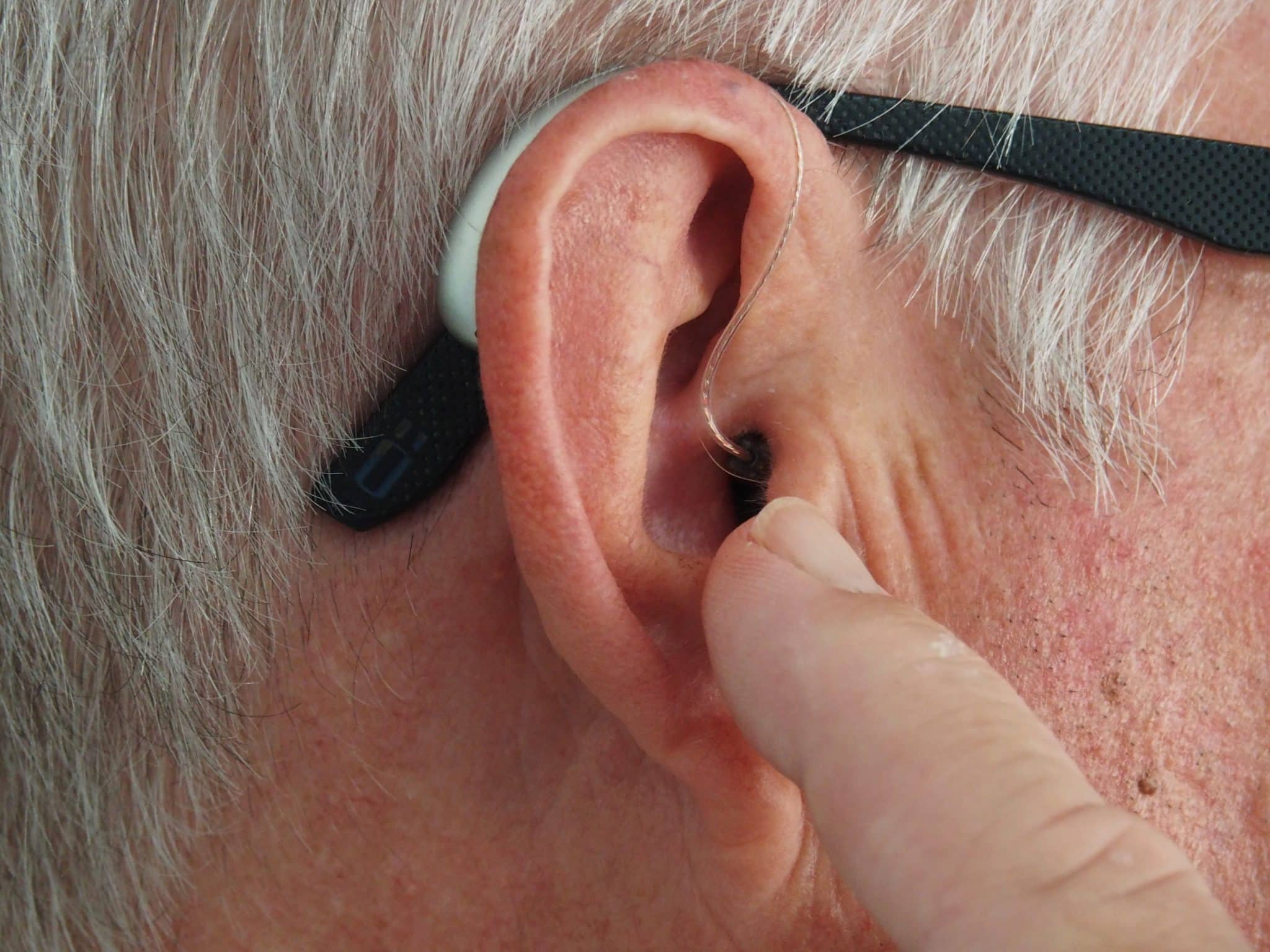The average human can hear between 20 Hz and 20 kHz, but did you know that cats hear 55 Hz to 79 kHz? Or that dogs have a range of 67 Hz to 44 kHz? These numbers are impressive and mean that animals may hear better than us, but unfortunately; they too can suffer from hearing loss. So, are there hearing aids for dogs? Find out in this blog.
 Since your dog can’t say “What?” when they cannot hear you, there are other ways to tell if your dog has hearing loss. They will not respond to squeaky toys, clapping, yelling, doorbells, or other common sounds. They may be difficult to wake up and may be startled since they did not hear you approach. They also may bark more because they cannot hear themselves.
Since your dog can’t say “What?” when they cannot hear you, there are other ways to tell if your dog has hearing loss. They will not respond to squeaky toys, clapping, yelling, doorbells, or other common sounds. They may be difficult to wake up and may be startled since they did not hear you approach. They also may bark more because they cannot hear themselves.
Like with humans whose poor hearing cannot be cured, hearing aids can be an option for dogs. A doctor at Auburn University in Alabama took a basic human hearing aid and mounted it on a dog collar. He then took a plastic tube to connect the aid to a foam plug within the dog’s ear canal.
Clearly, not all dogs would be tolerant of this, though smaller dogs had more patience with the foreign object in their ear. Because of the risk of rejection, hearing aids for dogs are not all that common and are fairly expensive.
Doctors are working on cochlear prostheses or implants for dogs, however, they too are extremely expensive and there is still risk that it will not be effective. Deaf dogs do not understand they are deaf and may still respond to sign languages, so the step of hearing aids for dogs may be extreme and ill-advised. Watch out for your pet and provide them with the love and attention they deserve!
Symptoms of Hearing Loss
 Since your dog can’t say “What?” when they cannot hear you, there are other ways to tell if your dog has hearing loss. They will not respond to squeaky toys, clapping, yelling, doorbells, or other common sounds. They may be difficult to wake up and may be startled since they did not hear you approach. They also may bark more because they cannot hear themselves.
Since your dog can’t say “What?” when they cannot hear you, there are other ways to tell if your dog has hearing loss. They will not respond to squeaky toys, clapping, yelling, doorbells, or other common sounds. They may be difficult to wake up and may be startled since they did not hear you approach. They also may bark more because they cannot hear themselves.





